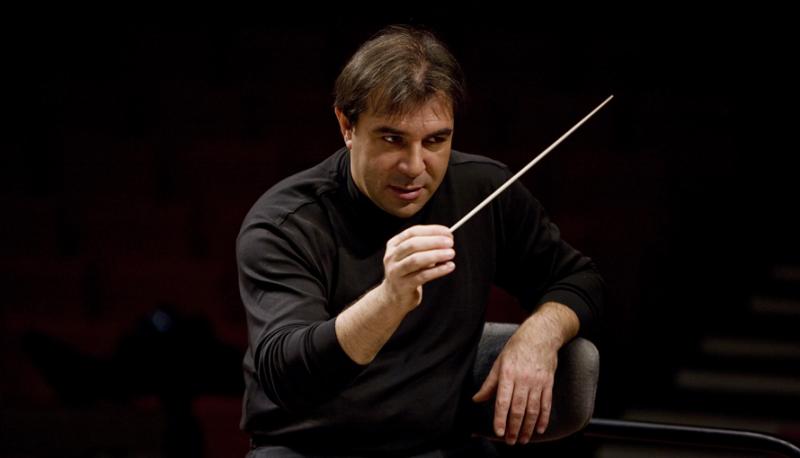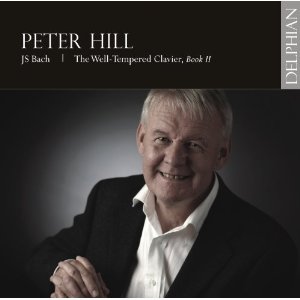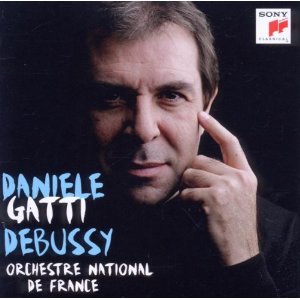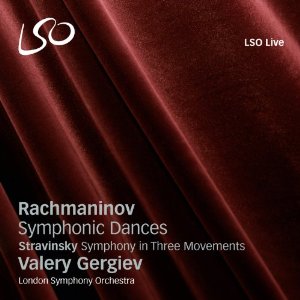Classical CDs Weekly: Bach, Debussy, Rachmaninov, Stravinsky | reviews, news & interviews
Classical CDs Weekly: Bach, Debussy, Rachmaninov, Stravinsky
Classical CDs Weekly: Bach, Debussy, Rachmaninov, Stravinsky
Exciting French impressionism, Bach keyboard music and 20th century music composed by exiled Russians


Book 2 of Bach’s Well-Tempered Clavier doesn’t often appear without Book 1. It’s sometimes unfairly perceived as drier, more academic than its predecessor. Bach’s didactic aim for Book 1 (“for the profit and use of musical youth desiring instruction”) remains apposite. Sensible pianists won’t underplay this, and what you want to hear is something akin to an interesting lecture delivered by a charismatic guru. And Peter Hill fits the bill – hearing him play Bach is a little like listening to a friendly primary school teacher relating a stream of fascinating anecdotes. Hill’s outstanding technique need never be questioned – this is a musician who has recorded Messiaen’s complete piano output – but there’s no flashiness, no Gouldian ego distorting the music’s shape.
Mentioning all the high spots would require too many words. Hill’s lyrical way with the preludes is a consistent joy, and the gentle, unobtrusive control of tempo makes some of them sound like baroque improvisations. He can play with delicacy and humility. Each fugue is so carefully voiced, each entry so perfectly weighted. It’s easy to feel slightly oppressed and overwhelmed by this magisterial work; Hill makes it approachable without underplaying the compositional mastery. Along with Roger Woodward’s recording, this is essential listening. Hill’s sleeve notes combine erudition with accessibility.

Debussy’s La Mer was completed in the unlikely surroundings of an Eastbourne hotel. Good readings can still surprise and delight - how can an orchestra be made to produce sonorities so liquid, so unpredictable? It’s all in observing Debussy’s carefully calculated details, without overwhelming the momentum. Daniele Gatti’s performance never sacrifices the sense of forward movement. You get the wood and the trees. And the results are wonderfully exciting – the brashness, the aggression of the noisier climaxes comes as a welcome shock. This is Debussy painted in bold acrylics rather than insipid watercolours. Pay attention to the brass playing as the work finishes- those crucial fanfares excised by Debussy are reinstated before the chorale, and there’s something extraordinary going on in the trumpet parts in the stormy closing seconds which I’ve never noticed before. Have a towel ready.
Perhaps it was a mistake to follow such an extrovert La Mer with the gentler Prélude à l’après-midi d’un faune. But Gatti catches the sweaty heat of the piece and the wind solos are effortless. Debussy’s Images aren’t heard enough in their complete form. Here, Gigues is suitably foggy and damp, and Ibéria’s cod-Spanish colours are painted with affection. Rondes de Printemps sounds ebullient. Is this the best-played, best-conducted collection of Debussy’s orchestral music to appear in recent years? Probably.

Stravinsky’s Symphony in Three Movements isn’t a symphony in the usual sense. Stravinsky didn’t "do" conventional symphonic development. Its constituent parts were cannily assembled from fragments of an abortive film score and sketches of work for piano and orchestra, with a last movement composed partly in response to news footage of WW2. Not that the casual listener would notice. It’s a thrilling work; disturbing, violent and ultimately exultant. Gergiev’s reading is a satisfying one and the LSO are on superlative form. The first movement’s dark energy is seductive; close your eyes and this could be a film noir soundtrack. Every rhythmic lurch is handled securely, without sacrificing the essential sense of danger, the feeling that things might collapse at any point. The jazzy closing minutes of the finale prefigure Bernstein, and that surprisingly juicy final chord is overwhelming.
And it’s a neat idea to couple the Stravinsky with Rachmaninov’s last work, another three-movement proto-symphony composed in early 1940s Los Angeles. Gergiev’s truculent, measured opening comes as a surprise, lending the music a darker, more subdued tone. The bass clarinet-led build up to the recapitulation is nicely handled and the nostalgic quote from the composer's First Symphony is mournful, almost desolate. There’s plenty of black humour in the second movement’s danse macabre, and Gergiev’s forces correctly observe the gear change to a slower tempo in the third dance as the Russian Orthodox chant gains the upper hand over the Dies irae. Punchy, powerful stuff, in close-up, vivid sound.
Buy
Explore topics
Share this article
The future of Arts Journalism
You can stop theartsdesk.com closing!
We urgently need financing to survive. Our fundraising drive has thus far raised £49,000 but we need to reach £100,000 or we will be forced to close. Please contribute here: https://gofund.me/c3f6033d
And if you can forward this information to anyone who might assist, we’d be grateful.

Subscribe to theartsdesk.com
Thank you for continuing to read our work on theartsdesk.com. For unlimited access to every article in its entirety, including our archive of more than 15,000 pieces, we're asking for £5 per month or £40 per year. We feel it's a very good deal, and hope you do too.
To take a subscription now simply click here.
And if you're looking for that extra gift for a friend or family member, why not treat them to a theartsdesk.com gift subscription?
more Classical music
 BBC Proms: Barruk, Norwegian Chamber Orchestra, Kuusisto review - vague incantations, precise laments
First-half mix of Sámi songs and string things falters, but Shostakovich scours the soul
BBC Proms: Barruk, Norwegian Chamber Orchestra, Kuusisto review - vague incantations, precise laments
First-half mix of Sámi songs and string things falters, but Shostakovich scours the soul
 BBC Proms: Alexander’s Feast, Irish Baroque Orchestra, Whelan review - rapturous Handel fills the space
Pure joy, with a touch of introspection, from a great ensemble and three superb soloists
BBC Proms: Alexander’s Feast, Irish Baroque Orchestra, Whelan review - rapturous Handel fills the space
Pure joy, with a touch of introspection, from a great ensemble and three superb soloists
 BBC Proms: Moore, LSO, Bancroft review - the freshness of morning wind and brass
English concert band music...and an outlier
BBC Proms: Moore, LSO, Bancroft review - the freshness of morning wind and brass
English concert band music...and an outlier
 Willis-Sørensen, Ukrainian Freedom Orchestra, Wilson, Cadogan Hall review - romantic resilience
Passion, and polish, from Kyiv's musical warriors
Willis-Sørensen, Ukrainian Freedom Orchestra, Wilson, Cadogan Hall review - romantic resilience
Passion, and polish, from Kyiv's musical warriors
 BBC Proms: Faust, Gewandhausorchester Leipzig, Nelsons review - grace, then grandeur
A great fiddler lightens a dense orchestral palette
BBC Proms: Faust, Gewandhausorchester Leipzig, Nelsons review - grace, then grandeur
A great fiddler lightens a dense orchestral palette
 BBC Proms: Jansen, Royal Concertgebouw Orchestra, Mäkelä review - confirming a phenomenon
Second Prom of a great orchestra and chief conductor in waiting never puts a foot wrong
BBC Proms: Jansen, Royal Concertgebouw Orchestra, Mäkelä review - confirming a phenomenon
Second Prom of a great orchestra and chief conductor in waiting never puts a foot wrong
 BBC Proms: Royal Concertgebouw Orchestra, Mäkelä review - defiantly introverted Mahler 5 gives food for thought
Chief Conductor in Waiting has supple, nuanced chemistry with a great orchestra
BBC Proms: Royal Concertgebouw Orchestra, Mäkelä review - defiantly introverted Mahler 5 gives food for thought
Chief Conductor in Waiting has supple, nuanced chemistry with a great orchestra
 Dunedin Consort, Butt / D’Angelo, Muñoz, Edinburgh International Festival 2025 review - tedious Handel, directionless song recital
Ho-hum 'comic' cantata, and a song recital needing more than a beautiful voice
Dunedin Consort, Butt / D’Angelo, Muñoz, Edinburgh International Festival 2025 review - tedious Handel, directionless song recital
Ho-hum 'comic' cantata, and a song recital needing more than a beautiful voice
 Classical CDs: Dungeons, microtones and psychic distress
This year's big anniversary celebrated with a pair of boxes, plus clarinets, pianos and sacred music
Classical CDs: Dungeons, microtones and psychic distress
This year's big anniversary celebrated with a pair of boxes, plus clarinets, pianos and sacred music
 BBC Proms: Liu, Philharmonia, Rouvali review - fine-tuned Tchaikovsky epic
Sounds perfectly finessed in a colourful cornucopia
BBC Proms: Liu, Philharmonia, Rouvali review - fine-tuned Tchaikovsky epic
Sounds perfectly finessed in a colourful cornucopia
 BBC Proms: Suor Angelica, LSO, Pappano review - earthly passion, heavenly grief
A Sister to remember blesses Puccini's convent tragedy
BBC Proms: Suor Angelica, LSO, Pappano review - earthly passion, heavenly grief
A Sister to remember blesses Puccini's convent tragedy
 BBC Proms: A Mass of Life, BBCSO, Elder review - a subtle guide to Delius's Nietzschean masterpiece
Mark Elder held back from blasting the audience with a wall of sound
BBC Proms: A Mass of Life, BBCSO, Elder review - a subtle guide to Delius's Nietzschean masterpiece
Mark Elder held back from blasting the audience with a wall of sound

Add comment